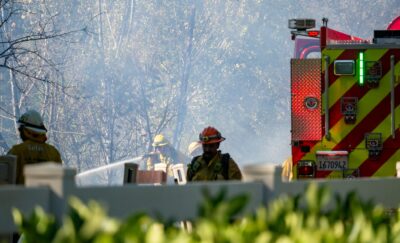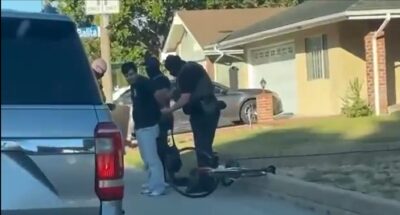Motorcycle accidents often happen suddenly and leave a lasting mark on everyone involved. For riders, the crash can be devastating both physically and emotionally. Beyond the rider, family members and even the broader community feel the ripples of what occurred. Life before the accident can feel completely different from what comes after, reshaping routines and expectations in ways no one could have foreseen. The sense of freedom that comes with riding a motorcycle is intense, but when an accident strikes, that freedom can feel painfully fragile.
In close-knit places like those around the Coachella Valley, the effects of a motorcycle accident reach beyond individual pain. Neighbors, friends, and local businesses may also experience changes that ripple outward in unexpected ways. An accident can shift daily routines and spark conversations about safety, responsibility, and community support. These moments highlight the fragile balance between independence on the road and the risks that come with it, reminding us that behind every accident is a network of lives deeply affected.
The aftermath often forces people to reconsider how they live and move. For some, this means reevaluating the risks they take daily or advocating for safer roads and better awareness. Others may find new strength in community efforts or personal resilience. Accidents remind communities that safety measures are not just rules but tools that protect lives and preserve the freedom that riding represents. They open the door for broader reflection on how communities can better support one another in times of crisis.
A Closer Look at Motorcycle Accidents
According to Donaldson & Weston, motorcycle accidents tend to be more severe than other types of crashes because riders have less protection. The reasons for these accidents can vary widely, from reckless driving and speeding to poor road conditions or distractions behind the wheel. Each accident carries its own story, but the consequences often include serious injuries or even death. The vulnerability of motorcyclists calls for heightened awareness not only from riders themselves but from all drivers sharing the road.
For communities like those covered by SignalsCV, motorcycle accidents raise awareness about road safety in a very personal way. They serve as urgent reminders that while motorcycles offer a sense of independence and adventure, they also demand extra caution and respect from everyone on the road. These accidents show the importance of responsible riding and the need for better infrastructure and clearer signage to protect riders navigating busy local streets and highways.
Accident reports also help identify patterns in dangerous areas or risky behaviors. Understanding these patterns can aid local leaders and residents in working together on prevention. Whether it’s improving signage, enforcing helmet laws, or encouraging safer driving habits, addressing these factors can reduce future accidents and make roads safer for everyone. The lessons learned extend beyond statistics and influence how communities organize around road safety and rider education.
The Ripple Effect on Families
When a motorcycle accident happens, families are often swept into a difficult and unexpected reality. The injured rider may face long hospital stays, physical therapy, or permanent disabilities that alter daily life. Family members quickly find themselves taking on caregiving roles, balancing emotional stress, work responsibilities, and the demands of everyday living. This sudden shift can feel overwhelming, especially when resources and support are limited.
Beyond the physical recovery, the emotional toll can weigh heavily on families. They deal with anxiety, fear, and uncertainty about the future. The accident can disrupt financial stability, especially if the rider was a primary earner. Often, the burden falls on spouses or parents who must manage medical bills alongside household expenses. In many cases, the extended family and community step up, offering support and care, but the strain remains deeply personal and ongoing.
The changes also affect family dynamics in profound ways. Roles may shift as caregivers adjust to new responsibilities, and relationships can either strengthen or strain under pressure. This emotional journey is complex, filled with moments of hope and frustration. It highlights how accidents extend beyond individual harm to touch everyone connected to the rider, reshaping families in ways that require resilience and patience over the long term.
Community Response and Support
Local communities often rally together after serious incidents like motorcycle accidents. In neighborhoods with strong connections, neighbors offer rides, meals, and moral support. Churches, clubs, and other organizations might hold fundraisers or awareness events to help families cope and to bring attention to road safety. This kind of response creates a network of care that can ease the burden for those affected.
This support can be vital for recovery. It reminds people they are not alone in their struggles and that help is close at hand. The shared experience of tragedy can motivate improvements in safety measures such as better street lighting, increased police patrols in high-risk areas, or more public education campaigns. Communities grow stronger when they respond collectively to these challenges, creating safer environments through cooperation.
Additionally, community involvement often leads to education efforts. Riders and drivers benefit from workshops or local events that focus on awareness and prevention. When communities invest in education, they build a foundation that reduces risks and empowers everyone to make safer choices on the road. This spirit of shared responsibility fosters a safer, more attentive community culture.
Changes That Follow an Accident
Life rarely returns to exactly how it was after a motorcycle accident. Some riders face permanent physical changes that affect their daily habits. Simple tasks may become difficult, and independence might have to be relearned. Adjusting to these changes requires time, patience, and often outside support from medical professionals and loved ones.
At the same time, accidents often spark conversations about prevention. Family members may encourage safer behaviors or advocate for better policies at the local level. Public officials might respond with new safety campaigns or improvements to road design. These efforts aim to reduce the chances of similar accidents in the future and to protect others from experiencing the same pain.
These shifts may also influence how people view motorcycle culture. Some riders become advocates for better protective gear or safer riding practices. The shared experiences and lessons learned inspire a community-wide commitment to change that keeps riders safer while preserving their passion for the open road. The balance between safety and freedom becomes a central conversation that unites riders, families, and officials alike.
Building Safer Roads and Communities Together
Recovery from a motorcycle accident is a complex journey that goes beyond physical healing. It requires emotional support, practical adjustments, and a collective shift in how communities view road safety. Listening to those affected and learning from their experiences is essential for creating lasting change.
Communities like those featured on SignalsCV play a vital role by sharing stories and raising awareness. Each accident serves as a reminder that safety is a shared responsibility. When people come together to care for one another and take action, they create an environment where riders and everyone else can feel safer on the road.
Looking ahead, ongoing dialogue and community engagement will be crucial. Embracing a culture of care and prevention helps neighborhoods reduce accidents and supports survivors in rebuilding their lives. This collective effort strengthens bonds and shapes roads into places where freedom and safety can exist side by side.






